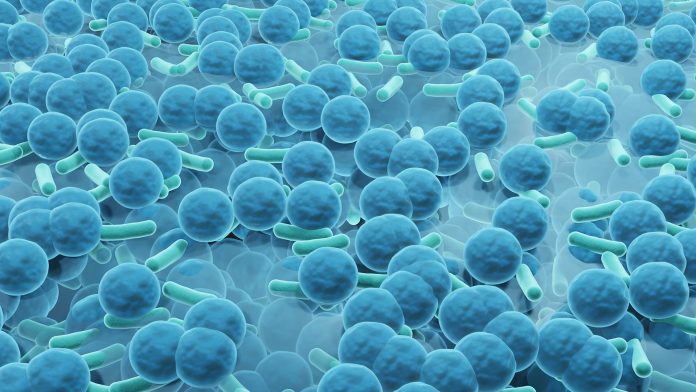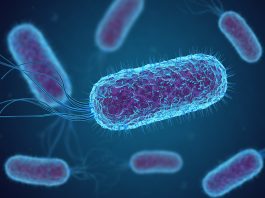Antibiotic resistance (ABR) poses a serious threat to human health. The QURES Group has developed a nature-inspired solution, advocating for transformative practices to combat ABR effectively.
A century ago, Fleming introduced us to the first antibiotic, Penicillin. Shortly after its adoption, he warned that we would lose this vital treatment if we did not respect it and recognise the bacteria’s ability to evolve and resist. Unfortunately, we ignored his caution and continued with our practices without consideration. Fleming was right, and now we are facing the consequences of our actions.
How many people around the world have died because we failed to heed Fleming’s warning about Penicillin? Today, almost five million deaths annually in Africa alone are caused directly and indirectly by AMR. By 2050, this could be 50 million annually worldwide. Are you and your family prepared to become part of that statistic? This issue will not only affect people in Africa or those living in poverty; it will impact individuals across all classes and demographics in Europe and the USA, regardless of wealth.
Other pathogens, viruses, and fungi have been found to evade the effective treatments humans have developed.
Yet, we continue to press on! The reckless use of these treatments in human medicine, along with numerous applications unrelated to health, leaves us vulnerable to these microscopic organisms.
There are hundreds of articles, papers, and books documenting our struggle with pathogens and their ability to resist our efforts to eradicate them. Since Fleming first cautioned us to respect pathogens, at least one notable individual has raised the issue of antibiotic resistance (ABR) every decade, echoing Fleming’s warning. We have endeavoured to find solutions but have repeatedly fallen short, allowing our disregard for nature and human health to shape our attitudes toward health and life in general.
The history of antibiotic resistance
Fleming’s discovery of penicillin will celebrate its 100th anniversary in a few years. While we hold great respect and admiration for Fleming’s work, it is essential that we swiftly find a replacement for his discovery. We can and must do better, so let me introduce you to POSTABR®.
POSTABR® is a technology inspired by nature’s inherent strategies for protecting humans and animals from pathogens. Since this technology is rooted in nature, it does not harm our bodies, cells, or the beneficial bacteria and viruses that live within us, which are crucial for maintaining our health.
Antibiotic Resistance (ABR) is being described as a pandemic that is comparable in power and mortality to the impact of COVID-19. However, ABR is not the only health crisis we should be concerned about. Numerous other health issues could escalate into pandemics if we do not take proactive measures soon. While there are also numerous diseases that will not spread and become pandemics, together, they can cause millions of deaths and many millions of sufferers and potentially leave lingering aftereffects.
After more than ten years of research, QURES has successfully developed a molecule that can combat pathogenic resistance. Nevertheless, simply eradicating pathogens is not sufficient for patient recovery. We must also restore patients’ health and strengthen their immune systems to fend off future infections, which presents a significant challenge.
A major cause for concern is our attitude towards healthcare and that of our politicians. Doctors primarily have the tools to reduce symptoms, while we tend to focus heavily on the healthcare system, including the work, costs, and profits generated for pharmaceutical companies and related care providers and suppliers.
Our attitudes need to change. The pharmaceutical industry often perpetuates a cycle of poor health. Instead, our focus should shift to promoting good health. If individuals can become and stay healthy, they will require less medical care. This approach is not only more cost-effective but also quicker and easier in the long run.
Target HEALTH: Cure patients
An example of our politicians’ focus on healthcare is the funding opportunities provided by major nations. These opportunities often target what are known as ‘FADS’ and support the pharmaceutical industries in producing more medications that keep patients in poor health.
Over the last 20 years, the number of funding opportunities or support for companies and individuals aiming to develop a cure for specific diseases can be counted on one hand. During the AIDS/HIV crisis, many companies made significant efforts to alleviate the symptoms of patients. However, I faced many rejections when presenting , to many organisations, my technology to cure and overcome COVID-19, due to the very strict criteria they demanded from new technologies. A CURE was not on their list of criteria.
About eight years ago, whilst at home one evening, I answered a phone call on my landline. It was a man from Nairobi who worked as a night watchman for an international organisation. He spoke in a hurry and with a lowered voice.
His first statement was, “Is that Dr Stead?” I answered yes, “Then you must help me because my wife and I are in dispute.”
A month earlier, both he and his wife had been tested for AIDS, and both were positive. His wife decided to go to a local doctor to try whatever was available to cure her infection. The Doctor prescribed her two doses of the samples I had left with him for him to consider. She had enough money and paid him over £150 for the examination and prescription.
A week later, she was retested and found to be virus-free. She went home and promptly told her husband of the good news and told him to also get a certificate if he expected his husbandly favours.
He visited the same Doctor who, at that time, had no more of my product. Then he went to work, and it was several days before he found time at night when it was quiet at work, and he risked calling me. Sadly, I could not help him. No product was available then in Kenya, and it would take him several weeks or months to save such a huge sum of money.
On three previous occasions, I had sent samples of my product to the Doctor. Just small numbers in the hope they would be allowed past customs and could be delivered. The first box of six arrived, but the second and third parcels were confiscated. The Doctor had success with three separate patients, one with HIV and two with different conditions.
That was the end of my involvement, but the man was paying out huge sums of money each month for the only available treatments, subsidised by donations from The World Health Organization (WHO), RED CROSS, other Agencies and the USA, to be kept in a state of terrible ill health.
How did we get here?
So, why have we learned to live in and maintain a state of poor health? To start, let us look at the following two statements published within the last ten years:
USA: Healthcare and changes needed¹
On 2 July 2014, The Lancet published: “The health of Americans continues to improve. Life expectancy at birth, 78.7 years (76.2 for men and 81.0 for women), has never been higher.
“Age-adjusted death rates for four leading causes of death – heart disease, cancer, chronic lower respiratory diseases and stroke – are all falling. Immunisation rates for young children are high, racial and ethnic disparities in childhood vaccinations have largely been eliminated, and most vaccine-preventable diseases of childhood are now at historically low levels. Deaths from motor vehicle crashes are at their lowest levels since 1950, and teen pregnancies have fallen to their lowest rate in seven decades.”
US: Public policy and health in the Trump era²
On 11 February 2021, The Lancet published an executive summary: “The Lancet Commission (on public policy and health), continued to assess and review the state of US Health throughout the Trump era, and offered this first comprehensive assessment of the detrimental legislation and executive actions during Trump’s presidency that had devastating effects on every aspect of health in the USA. The Lancet Commission traces the decades of policy failures that fuelled Trumps’s ascent and left the USA lagging behind other high-income and several low-income nations on life expectancy. The report warns that a return to pre-Trump and the Trump era policies is not enough to protect health. Instead, sweeping reforms are needed to redress longstanding racism, weakened social and health safety nets that have deepened inequality, and calls on the important role of health professionals in advocating for healthcare reform in the USA.”

A shift in attitude
Richard Stead, Founder of QURES GROUP LTD, said: “In the last five years, whilst we have endured COVID, and it is not finished yet, other pathogens have emerged or resurfaced. The tsunami of pathogens has been strengthened by human behaviour, forged mainly by arrogance, greed and stupidity. The latter being the greatest generator of profits. We have convinced ourselves that we know better than nature. We choose to eat too much. We choose to grow and eat food that is no longer nutritious. We choose to inhale cigarette smoke. We choose to drink alcohol. We choose to use mind-bending drugs. We rely upon medications that keep us in poor health. We choose to avoid energetic ways of living. We choose to pollute our bodies. We choose to pollute our environment, nature and our world. We love and choose to be devoted to trends. We choose following the herd, rather than our own path. We choose to turn against the beauty of diversity. Most of the above we do in extremis. While the above may not apply to all, sadly, it does encompass the majority.
Whilst The Lancet comments related to the US, most other Western nations can be tarred with the same brush, and, sad as that may be, even more sad is the fact that the rest of the world wants to copy this broken model.
Nature has the answer: Chemistry is the key
QURES GROUP Limited accepted and has achieved an answer to the challenge. We designed a new platform of antipathogenic molecules which we call POSTABR®, having a novel mode of action against pathogenic bacteria and resistant strains. Under the trade name of OSCEAUN®, we are proud to offer HYPOTHIOCYANITE, being the first of several molecules we are set to manufacture. I know it is effective and safe because WHO recommend this technology for farmers living in isolated places that need to transport tankers of milk over long distances in searing sunshine. The milk arrives with a fresh taste and can be used to make cheese, yoghurts and bottled as fresh milk.
Why limit ourselves to bacterial pathogens? Viruses, fungi, and various other parasites and pathogens are becoming increasingly problematic. OSCEAUN® can combat these pathogens just as effectively as it does bacterial ones. QURES is leading us into a new era of health with our innovation: POSTABR®.
In light of the severe challenges posed by the COVID-19 pandemic, organisations like the WHO are gearing up for the next potential pandemic, referred to as “Disease X.” While we cannot predict what it will be, it is crucial that we prepare for it. A committee has been established under the auspices of the World Health Organization (WHO) with the objective of addressing the upcoming challenge of pandemic prevention. This committee, called “The World Together,” will consist of an Intergovernmental Negotiating Body responsible for drafting and negotiating a WHO convention, agreement, or other international instruments focused on pandemic prevention, preparedness, and response.
Will the next threat come from a known pathogen or a completely new organism? How long will it take to develop a vaccine?
The capability of OSCEAUN® ensures it will be effective against this new and dangerous organism. Nature has already designed and built the competence of hypothiocyanite; I merely replicated it.
Why is it not yet out there curing people with nasty diseases?
There are two main reasons:
- Funding manufacturing: I am seeking assistance from funding agencies and investors to finalise the manufacturing and delivery of our product for human and animal procedures, as well as clinical trials.
- Funding technologies: Currently, no funders have programmes aimed at developing technologies to cure infections, particularly those caused by resistant strains. While there is a significant amount of funding available for diagnostic techniques, equipment, studies monitoring global health trends, and vaccines, there is a glaring lack of funding for treatments and cures.
Without the programmes established by the funding sources, no management or committees in such organisations will be willing to risk their money outside the parameters. We are in a quandary.
The competence of the human immune system that utilises hypothiocyanite to defend humans and animals against pathogens has been known for over 100 years. The technology is proven; there are hundreds of research studies and published papers on hypothiocyanite that affirm its safety and efficacy against a variety of bacteria, viruses, and fungi. There were substantial difficulties to overcome in order to present a finished product. Not least being: how to patent a natural molecule; its very short half-life; and lack of availability of suitable raw materials. We managed to overcome all the hurdles, such that EUPO has granted our patent and we can offer the finished product at pharmaceutical grade standards.
It is quite humbling to think that we can now put an end to AMR/ABR, and allow Surgeons and others to again use the wonderful techniques that can heal patients of Cancers and other horrible and deadly conditions.
Please note, this article will also appear in the 20th edition of our quarterly publication.









